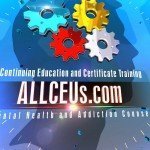 Relapse is the return to a prior state. When people are sick and start to feel better, then feel sick again we often say they had a “relapse.” People with mental health issues can relapse and start feeling depressed or anxious again. People with addictions may relapse and return to those old ways of thinking and behaving. People with chronic illness may have a period in which they feel good, followed by a “relapse” into a period in which they do not feel so good. Many of our patients have a combination of these issues. It is important to remember that a relapse in one area may cause a relapse in multiple other areas. Likewise, recovery or remission in one area will likely cause improvement in the other areas.
Relapse is the return to a prior state. When people are sick and start to feel better, then feel sick again we often say they had a “relapse.” People with mental health issues can relapse and start feeling depressed or anxious again. People with addictions may relapse and return to those old ways of thinking and behaving. People with chronic illness may have a period in which they feel good, followed by a “relapse” into a period in which they do not feel so good. Many of our patients have a combination of these issues. It is important to remember that a relapse in one area may cause a relapse in multiple other areas. Likewise, recovery or remission in one area will likely cause improvement in the other areas.
- Identifying relapse warning signs
- Preventing a slip from becoming a relapse
- Identifying and dealing with relapse triggers and cravings
- Managing social pressure
- Managing stressful or triggering situations at home and alone
- Dealing with negative emotions: Fear, Anxiety, Anger, Depression, Stress
Relapse Prevention and the 5 Rules of Recovery
Relapse Prevention in Older Adults, a SAMHSA publication
The Stages of Relapse
Relapse is a process, it's not an event. In order to understand relapse prevention you have to understand the stages of relapse. Relapse starts weeks or even months before the event of physical relapse. There are three stages of relapse.
Emotional relapse
Mental relapse
Physical relapse
Emotional Relapse
In emotional relapse, you're not thinking about using. But your emotions and behaviors are setting you up for a possible relapse in the future.
The signs of emotional relapse are:
- Anxiety
- Intolerance
- Anger
- Defensiveness
- Mood swings
- Isolation
- Not asking for help
- Not going to meetings
- Poor eating habits
- Poor sleep habits
Mental Relapse
In mental relapse there's a war going on in your mind. Part of you wants to use, but part of you doesn't. In the early phase of mental relapse you're just idly thinking about using. But in the later phase you're definitely thinking about using.
The signs of mental relapse are:
- Thinking about people, places, and things you used with
- Glamorizing your past use
- Lying
- Hanging out with old using friends
- Fantasizing about using
- Thinking about relapsing
- Planning your relapse around other people's schedules
- It gets harder to make the right choices as the pull of addiction gets stronger.
One technique for dealing with mental urges or cravings is to play the tape through. One drink usually leads to more drinks. You'll wake up the next day feeling disappointed in yourself. You may not be able to stop the next day, and you'll get caught in the same vicious cycle. When you play that tape through to its logical conclusion, using doesn't seem so appealing.
Physical Relapse
- Poor nutrition
- Inadequate or unrestful sleep
- Muscle tension
- Fatigue
The First Rule of Recovery
You don't recover from an addiction by stopping using. You recover by creating a new life where it is easier to not use. If you don't create a new life, then all the factors that brought you to your addiction will eventually catch up with you again.
Sign up
